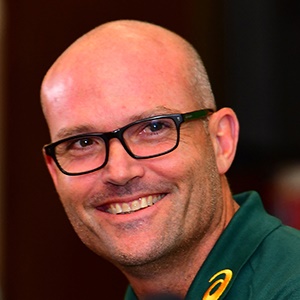Springboks
2020-05-20 20:58



|
Jacques Nienaber (Gallo) |
Brenden Nel – SuperSport
The Springboks were blessed with many leaders during last year’s Rugby World Cup campaign, but transparency, honesty and accepting responsibility were vital in their quest to glory.
Register your interest for the British & Irish Lions tickets in South Africa 2021
This was revealed by new head coach Jacques Nienaber, who served as the defensive coach for the team during the World Cup, in a webinar with the Wits Sports Department WISH.
According to SuperSport.com, Nienaber said the manner in which the team spoke openly, sorting out small things that could become big problems, was a massive boost in the way they handled the challenges that came their way.
“We had a lot of good leaders in our team. If you look at the guys who had already captained the Springboks, Pieter-Steph du Toit, Siya Kolisi, Duane Vermeulen, Schalk Brits, Eben Etzebeth. I think there were more. We were together for 19 weeks so we had open and honest conversations about small things. In Afrikaans you say ‘klein jakkalsies vreet die wingerd op’ (Small foxes can eat the entire vineyard). These small things, for example music on the bus, can create big problems.
“We had all the captains sitting there. I think it was probably seven of them and everybody gave input. We had a very transparent environment,” he said.
Nienaber pointed to the fact the Boks had no senior or junior ranking system within the team as one aspect that helped them succeed.
“The first thing Rassie (Erasmus, former head coach) said was that there is no senior or junior players. The way he explained it was like this – if Herschel Jantjies is seen as a junior and Faf (de Klerk) is his senior because there is a five year age difference, who is the senior and junior? Herschel. But when Faf is 30 and Herschel is 25 who is the senior then? Faf, because he is older? Let’s say Herschel has a bigger influence on the team then, when will Herschel ever be the senior guy?
“In our team it was about input and output, it was about ownership. It wasn’t about how old you were or how many Test matches you played for the Boks. It was never about that.”
He added that captain Kolisi’s leadership style encompassed this, and the way Kolisi listened to input and took it on board was a massive part of the success.
“Siya was the captain but there were other leaders. There were physical leaders, there were defensive leaders. The leaders of the scrum and they all had their own roles to play.
“It was a combined thing and I don’t want to take anything away from Siya, but it was a collective effort. But I must say what Siya did well – and that is his personality – he never was a guy who said it was his show. He was open and transparent. He said this is his responsibility but he wants input.
“It was just like we managed the coaching staff. It was always ‘this is your responsibility but we expect the other guys to give input’. So I think in our team we were fortunate that we had a very strong leadership group.”
READ the story on SuperSport.com


